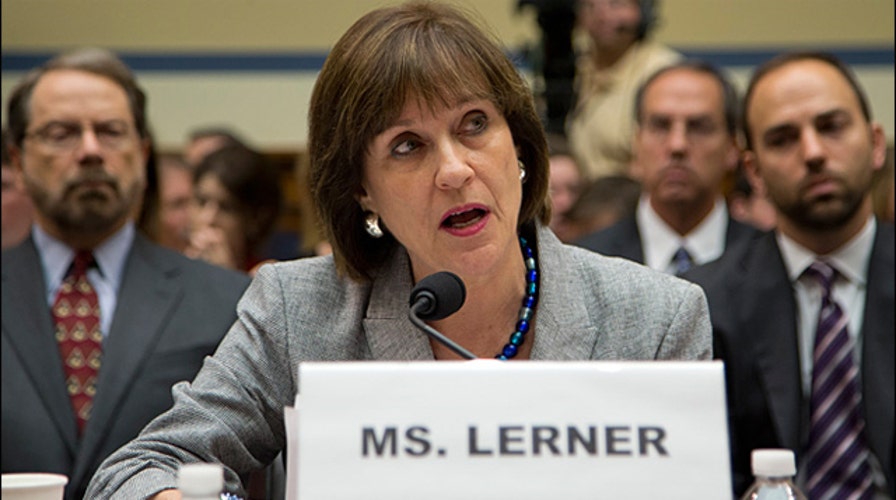Lois Lerner's 'lost' emails the center of IRS lawsuit
Conservative group wants forensic expert to figure out how Lerner's emails were lost and examine whether they can be recovered as part of a federal lawsuit against embattled agency
The evidence of IRS corruption just keeps piling up.
At what most expected to be a relatively routine House oversight committee hearing on Wednesday, there was yet another IRS bombshell.
On April 9, 2013, just days after seeing the draft Treasury Inspector General Report that revealed the IRS’s massive Tea Party targeting scheme, Lois Lerner, then director of exempt organizations at the IRS, sent an email to an IRS IT official asking whether the IRS’s internal chat system was searchable.
What’s equally as troubling and unbelievable is that congressional investigators and the American people learned of this internal chat system only on Wednesday – the first time this critical communications method inside the IRS was disclosed.
[pullquote]
That same email indicated that Lerner was urging her colleagues to be “cautious” in their email communications – because Congress might be watching. Here’s the relevant portion of the e-mail:
I had a question today about OCS [Microsoft Office Communications Server]. I was cautioning folks about email and how we have several occasions where Congress has asked for emails and there has been an electronic search for responsive emails – so we need to be cautious about what we say in emails. Someone asked if OCS conversations were also searchable – I don’t know, but told them I would get back to them. Do you know?
This email is damaging enough; it shows that the IRS officials were deeply concerned about what Congress might see. After all, if there’s “not a smidgen of corruption” at the IRS, as President Obama contends, what is there to fear from routine congressional oversight?
The response from IRS IT official Maria Hooke, however, was worse:
No, the IRS does not routinely save chat communications – unless employees intentionally take steps to preserve their conversation. These chat communications are not saved – and this is critical – despite the fact that “the functionality exists within the software.”
In other words, the IRS could have saved these communications – communications of particular concern to Lerner and her team – but it simply chose not to.
Lerner’s response to this news?
Perfect.
The timing of this email is not coincidental. As mentioned, it came just days after Lerner reviewed a draft investigative report from the inspector general (IG). And it came just one month before Lerner herself orchestrated a downplayed admission about the targeting scheme – planting a question at an American Bar Association conference so she could issue an apology in advance of the release of the IG’s findings.
It’s clear: This disturbing email was part of her well-orchestrated cover-up plan.
Now we know that the IRS “lost” Lerner’s emails with government officials and others outside the IRS.
Now we know that rather than preserve Lerner’s allegedly damaged hard drives – at a time when the IRS had already been sued by one conservative nonprofit and was facing congressional inquiries on behalf of others – it went ahead and “recycled” her computer, essentially throwing it away.
Now we know that the IRS didn’t even bother to save its internal chat communications, despite having the capacity to do so.
And there likely are more bombshells to come. IRS Commissioner John Koskinen, also testifying Wednesday, indicated more emails would be released and said, “I’m sure some of those will be interesting to people.”
We await those new emails with keen interest.
Some have said the IRS was out of control. I’d say the opposite. It was very much in control – doing exactly what it intended to do with relative impunity, including setting up its own IT resources not to preserve records but to cover its tracks.
With each revelation, however, it loses a bit more of its control over the conservative movement, over the media and over the public narrative. The evidence of corruption and cover-up is growing too great to ignore.
At the ACLJ, we are pressing ahead with our lawsuit on behalf of 41 conservative groups in 22 states. Soon enough, it will be held accountable in federal court, and at that point, the IRS will – finally – have no control over its legal destiny.

